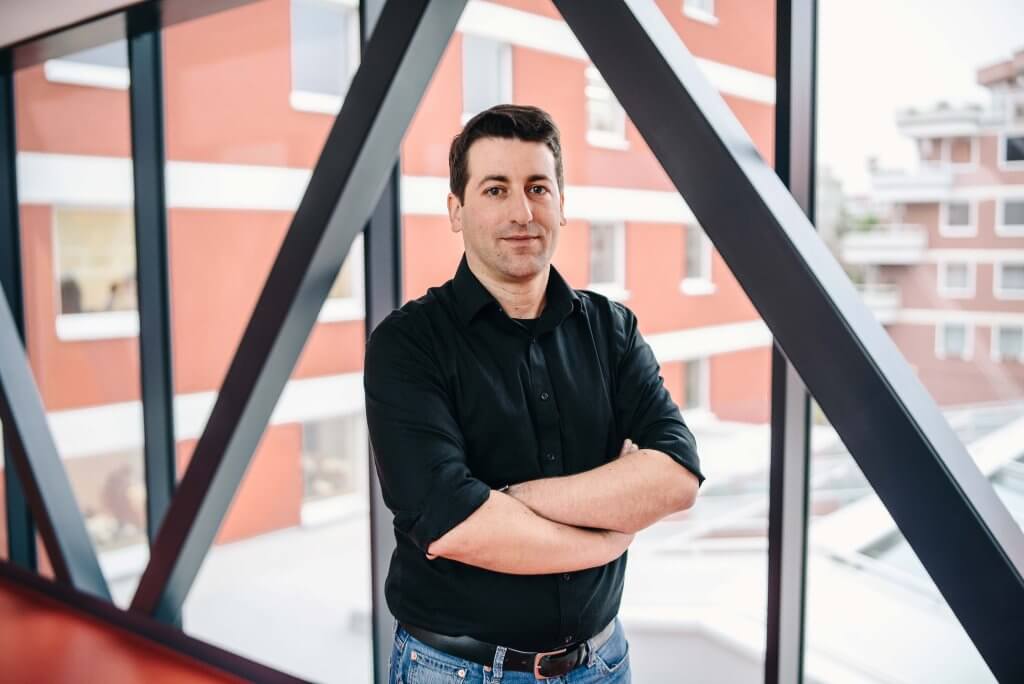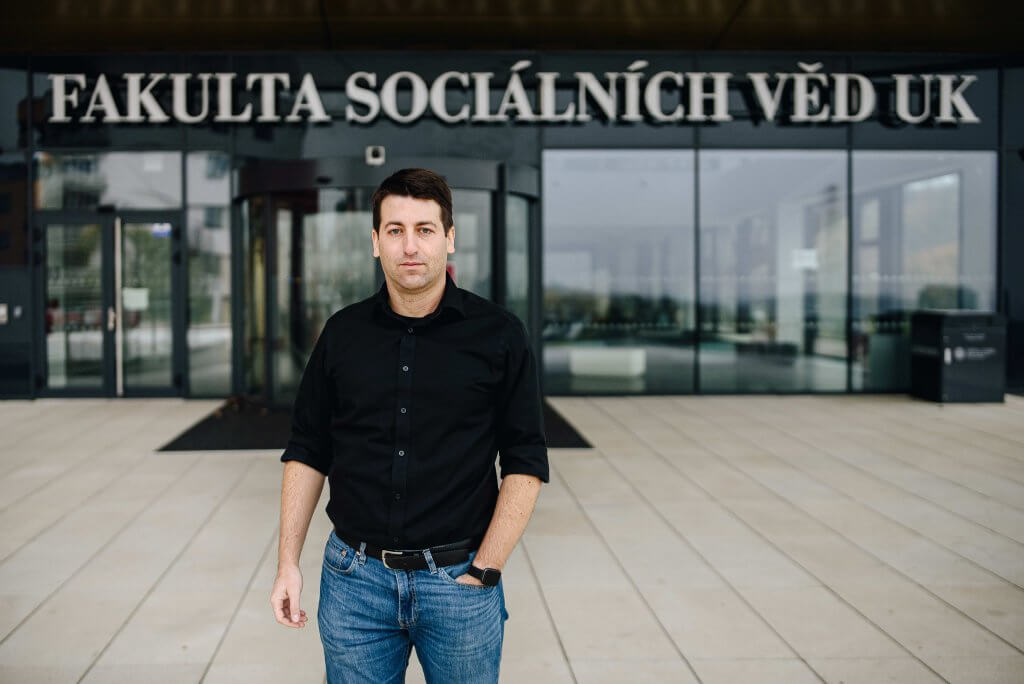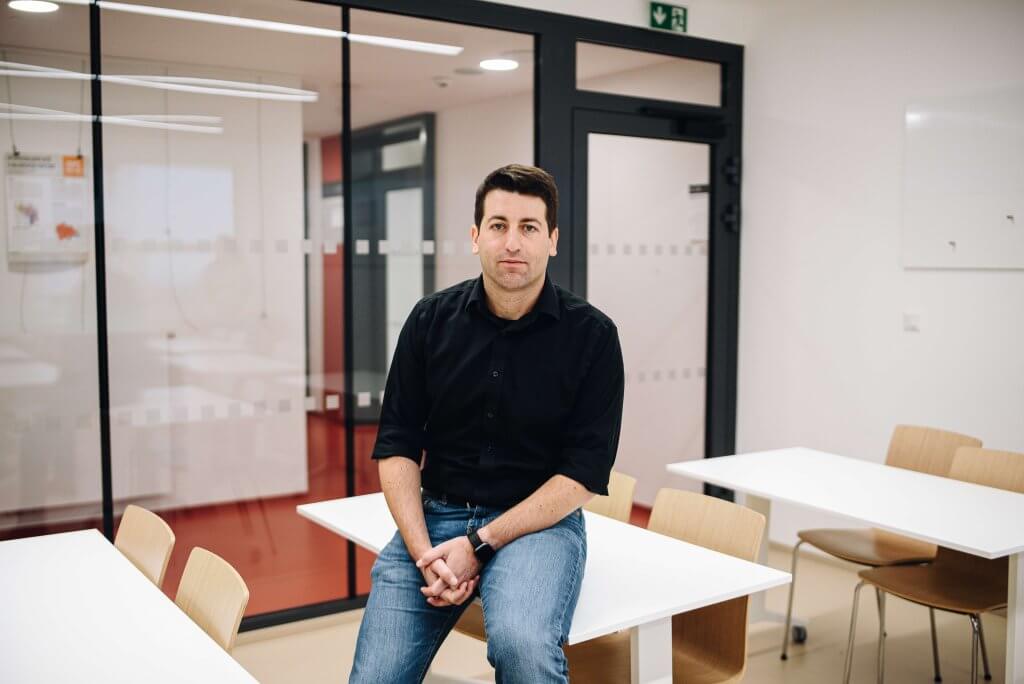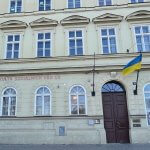Narrow specialisation on a selected topic is a successful tactic in the field of international debates. But how do small states choose them? Research from IMS FSV UK seeks the answer

Small states often search for a way to the forefront of high-level European policy debates. Specialisation in a chosen topic has long been identified as a key aspect of success. However, the understanding of how small states specialise is very limited. And precisely this is the main focus of the research being conducted by Tomas Weiss at the Institute of International Studies at FSV UK.
Exploring the process, politics and implications of the specialisation of small EU states in foreign and security policy, those are the main objectives of the project, which is currently being implemented thanks to the support of the Czech Science Foundation (GAČR). But what does that really mean in practice? The principal investigator, prof. Tomáš Weiss from the Institute of International Studies FSV UK answers.
“The literature on small states in international organisations generally argues that specialisation is one of the most important tools by which small states can compensate for the structural disadvantage that results from their limited capacities.But little is known about how countries decide to specialise, whether these decisions trigger any domestic disputes, when and how specialisation is recognised by other actors, and how specialisation can actually be defined,” Tomas Weiss explains.

Czech specialisation based on our own experience
He is collaborating on the project with Dr. Barbora Menclová, also from the Institute of International Studies FSV UK. They are focusing on three countries – the Czech Republic, Portugal and Austria – during the three-year project. “We are trying to compare countries that are similar in size but differ in the length of their membership in the European Union. At the same time, there is considerable variation between them in terms of foreign policy orientation and priorities. And they are big enough to have a tendency to influence EU foreign policy,” says the project’s principal investigator.
In particular, the Czech Republic has several topics that it thinks of as its primary specialisation, according to Tomáš Weiss. “Geographically, these are primarily the Western Balkans and Eastern Europe, and thematically, human rights and transition cooperation. These are topics where the Czech Republic is active, so I guess you can say that they are being fulfilled. However, it depends on the exact definition of the objectives, in which the Czech Republic is much more vague,” explains Weiss. Why are these topics being prioritised in the Czech Republic? There are mainly historical reasons – we draw on our own experience. An equally important component is the regional connection to nearby countries – the geographical proximity.

The path to fulfilling priorities at international level
Why is specialisation of small states crucial? According to the researchers, it can be a way to exert influence at the international level despite their relatively minority share in the functioning of the EU as a whole. “As positive examples, Sweden and Finland have largely influenced the shape and objectives of civilian crisis management in the European Union. Or the role of the Netherlands in promoting the theme of the rule of law in European foreign policy,” Weiss elaborates.
It is also important to see that by choosing narrow topics, a small state can become an ally of more influential and larger teams. “In general, specialisation can make a small state a valuable actor in debates at the international level, where it brings information and experience that other states do not have. And this added value is valued not only in multilateral but also in bilateral relations,” concludes Tomas Weiss on the project Specialisation in the foreign and security policy of small EU states.
prof. Mgr. Tomáš Weiss, M.A., Ph.D. works at the Department of European Studies of the Institute of International Studies FSV UK. His research focuses on European and foreign security policy, especially on its institutional structure and its relationship to the policies of EU member states.
He is currently involved in two ongoing projects. He is the principal investigator of the GAČR project – Specialization in the foreign and security policy of small EU states, and as a team member of the TAČR project – Network of experts for the analysis of strategic global trends. Last year, he was the team leader of the FSV UK project The European Network on Teaching Excellence (e-NOTE). The e-NOTE project aims to increase transparency, coherence and convergence in the enhancement and recognition of teaching excellence in higher education. In 2019, it received the prestigious Jean Monnet Chair in EU International Relations and Diplomacy Studies grant from the European Commission.
Professor Weiss is Deputy Director for Science at IMS FSV UK and is a member of the FSV UK Scientific Council. He also serves on the Scientific Council of the University of Defence and the Prague University of Economics and Business. In 2018-2019 he was a visiting researcher at the University of Cambridge. Since 2023, he has been a professor in International Area Studies.


